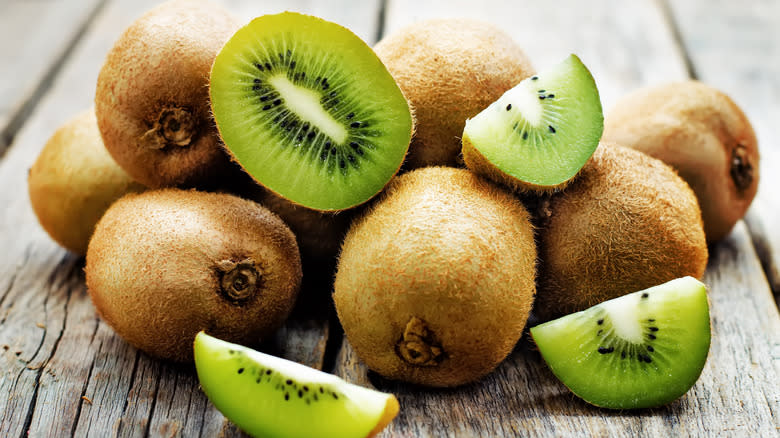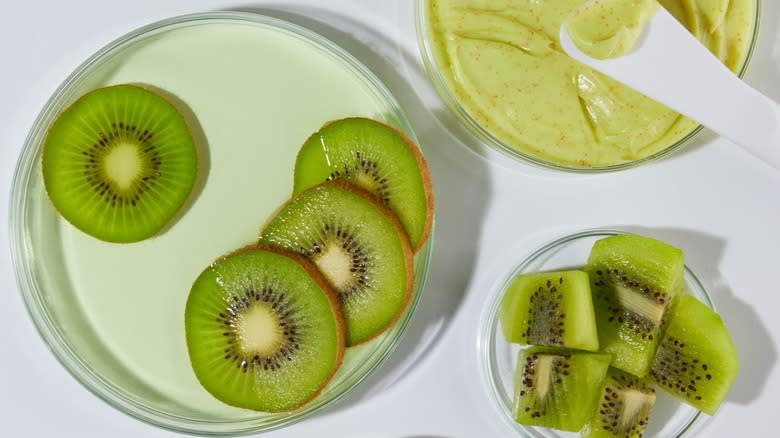Here's Why Your Tongue Stings From Eating Kiwi

No matter what time of year it is, there's nothing quite as refreshing as a big bowl of colorful fruit salad. Depending on which juicy flavors you marry together, this medley can aid with digestion, boost energy levels, and pack your diet with various vitamins and antioxidants. But, even with all this goodness, the dish can still sometimes leave you with a bad taste in your mouth — or rather, a bad feeling.
When some of us eat certain varieties of fruit — such as kiwi, one of the most well-known offenders — we experience something like a tingling sensation on our tongue, lips, and even into the throat. This can be a bit disconcerting, to say the least. But it could just be the enzymes at work. Kiwifruits — namely the green variety — contain the proteolytic enzyme actinidin, which exists as a protective response for the fruit. It also works to digest proteins in the human body, and unfortunately, our mouths are more sensitive to its effects than other organs in the digestive tract.
Other fruits that contain similar kinds of enzymes are pineapples, mangos, and papaya. In some cases, the prickliness may be caused by oral allergy syndrome (OAS). This ailment, also known as pollen-food allergy syndrome, occurs when our immune system mistakes the proteins and other properties in foods like fruits and vegetables for pollen, causing symptoms like mild swelling, a scratchy throat, and an itchy mouth.
Read more: 13 Simple Tricks To Pick The Best Fresh Fruit Every Time
How You Can Avoid These Side Effects When Eating Kiwis

In addition to oral allergy syndrome, reactions to kiwi may also be caused by a true food allergy. Signs of this kind of immune system response are typically more serious, including rashes, abdominal pain, or even trouble breathing. Needless to say, anyone who experiences these symptoms should cut out kiwis entirely — and also be aware of the fuzzy fruit's other applications, such as its use as a meat tenderizer, which could cause it to turn up in unexpected dishes.
However, for everyone else, there are a couple of ways to still enjoy kiwis with less irritation. First, it may help to steer clear when pollen counts are already high, as this exacerbates oral allergy syndrome symptoms. This is typically around springtime or in the fall, when common allergens such as grass and weed pollen are peaking. But the exact timing depends on your location as well as other environmental factors.
Peeling off the skin of your kiwi — where the proteins are concentrated — or cooking it can also help solve the prickly problem. Baking or heating of any kind degrades the proteins within foods and eliminates any cross-reactions. So, in recipes such as kiwi bread, bars, or just air-fried kiwis, the fruit won't give you the tingles. Of course, cooking kiwis also strips them of their vitamin C and other nutrients — a sacrifice you may just have to make for some peace of mouth.
Read the original article on Tasting Table.


